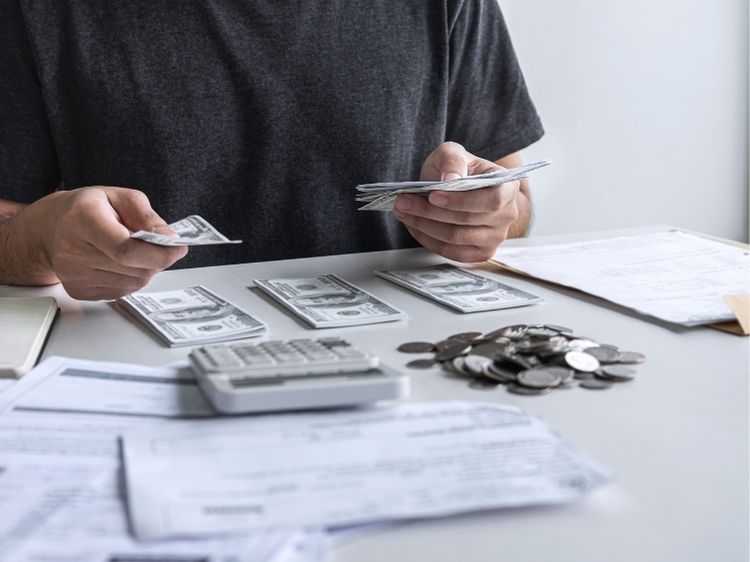What Are Bad Credit Loans?
We’ve all been there—life throws us a curveball, and suddenly, we’re facing financial challenges we didn’t see coming. If your credit score has taken a hit, you might think that securing a loan is next to impossible. But guess what? That’s not necessarily the case. Enter bad credit loans.
Bad credit loans are specifically designed for people with less-than-perfect credit. While traditional loans require stellar credit scores, these loans cater to individuals who may have a rocky financial history. So, if you’re dealing with a low credit score, don’t fret—there are still options on the table for you. Let’s dive into the world of bad credit loans and discover how they can help you out of a tough financial spot.
How Do Bad Credit Loans Work?
Bad credit loans work just like any other loan: You borrow a specific amount of money and agree to repay it with interest over time. The key difference? Lenders that offer bad credit loans are willing to work with individuals who may not have a flawless credit history.
- Higher Interest Rates: Since bad credit loans come with more risk for the lender, they typically have higher interest rates. It’s important to understand this and plan your budget accordingly.
- Flexible Requirements: Lenders may be more flexible with their loan requirements. For example, they might look at other factors beyond your credit score, like your income, employment status, or even a co-signer’s creditworthiness.
The bottom line is this: if your credit isn’t in the best shape, you still have options to secure a loan, but it’s crucial to shop around for the best deal.
Types of Bad Credit Loans
Not all bad credit loans are created equal. There are several types to consider, each with its own pros and cons.
1. Personal Loans
Personal loans for bad credit can be used for various purposes—from debt consolidation to home repairs. You can typically get these loans from banks, credit unions, or online lenders.
Pros:
- Fixed monthly payments
- Can be used for various needs
Cons: - Higher interest rates
- May require collateral or a co-signer
2. Payday Loans
Payday loans are short-term loans that are usually repaid on your next payday. These loans come with extremely high-interest rates and should be used only as a last resort.
Pros:
- Easy to get, even with bad credit
- No credit check required
Cons: - High fees and interest rates
- Can trap borrowers in a cycle of debt
3. Title Loans
Title loans use your car title as collateral. The lender holds onto your car title until you repay the loan.
Pros:
- Quick access to cash
- No credit check
Cons: - Risk of losing your car if you can’t repay the loan
- High interest rates
4. Secured Loans
Secured loans require you to provide collateral, such as a car, home, or savings account. If you default, the lender has the right to seize your asset.
Pros:
- Lower interest rates compared to unsecured loans
- Easier to qualify for with bad credit
Cons: - Risk of losing your asset if you fail to repay
How to Improve Your Chances of Getting a Bad Credit Loan
Even though bad credit loans are designed for individuals with low credit scores, there are still ways you can improve your chances of approval.
- Check Your Credit Report
Before applying for any loan, get a copy of your credit report and review it for errors. Any inaccuracies could be dragging down your score, and fixing them could boost your chances of getting approved. - Apply with a Co-Signer
If your credit is particularly low, consider applying with a co-signer who has better credit. This can not only improve your chances of getting approved but could also lower the interest rate on the loan. - Show Proof of Income
Lenders want to know that you have the means to repay the loan. Providing proof of a stable income can go a long way in securing approval for a bad credit loan. - Offer Collateral
Offering an asset as collateral (like a car or savings account) can increase your chances of approval. Secured loans are seen as less risky for lenders because they have something to fall back on if you can’t repay.
Pros and Cons of Bad Credit Loans
Just like any financial product, bad credit loans have their upsides and downsides.
Pros:
- Access to Funds: If you have bad credit and need money, these loans provide a way to get the cash you need.
- Build Credit: Repaying your loan on time can help improve your credit score over time.
- Flexible Options: With so many types of bad credit loans available, you can find one that fits your situation.
Cons:
- High Interest Rates: You’ll likely pay more in interest due to your credit history.
- Fees: Some bad credit loans come with hefty fees, including origination fees and prepayment penalties.
- Risk of Debt Cycle: Payday loans and other high-interest options can lead to a cycle of debt if you’re unable to repay them on time.
FAQs About Bad Credit Loans
Q: Can I get a bad credit loan without a credit check?
A: Yes, some lenders offer loans without performing a credit check, such as payday loans or title loans. However, these often come with higher interest rates and more risk.
Q: How can I improve my credit score while repaying a bad credit loan?
A: Make your payments on time every month and pay more than the minimum if possible. Over time, this can help boost your credit score.
Q: What are the risks of taking out a bad credit loan?
A: The biggest risks include paying high interest rates and fees, and in some cases, losing collateral if you default on a secured loan.
Q: How much can I borrow with a bad credit loan?
A: The amount you can borrow will depend on the type of loan and the lender’s terms. Typically, bad credit loans range from a few hundred to several thousand dollars.
Conclusion: Is a Bad Credit Loan Right for You?
Bad credit loans can be a lifeline when you’re in a financial pinch, but they’re not without risks. High interest rates and fees can make them expensive, and it’s easy to fall into a cycle of debt if you’re not careful. However, if you manage your loan responsibly and make on-time payments, a bad credit loan can also help rebuild your credit.
Always shop around, compare loan terms, and consider the long-term financial impact before signing on the dotted line. A bad credit loan may not be ideal, but with the right approach, it can be a helpful tool to get you back on track.







